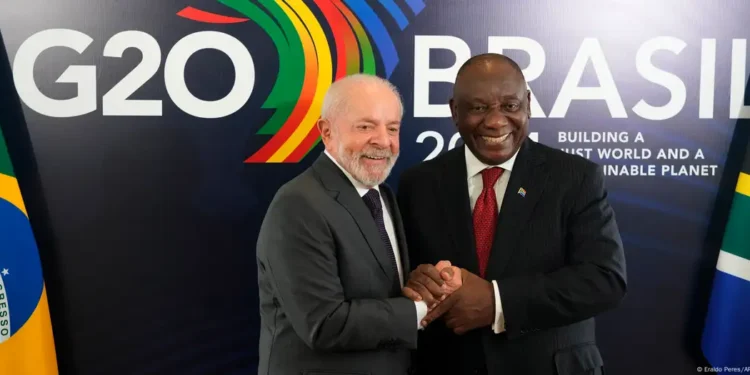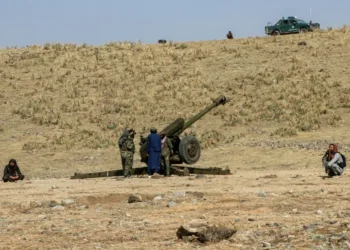The first-ever African presidency of the G20 group will revolve around climate justice, state debt and minerals. But with international divisions, progress will be tough.
Finally, it’s South Africa’s turn. The country took the G20 chair in December, the last remaining member to hold the presidency.
The G20, formed in 1999, is a group of 19 of the world’s largest economies, plus the European Union, that meets regularly to coordinate global policies on trade, health, climate and other issues. The informal forum does not have a permanent secretariat.
After granting the African Union membership in 2023, the G20 will now finally arrive on African soil. South Africa will host around 130 meetings and forums, leading up to the summit of the heads of state and governments in November 2025 in Johannesburg.
G20 premiere on African soil
Elizabeth Sidiropoulos, chief executive for the South African Institute of International Affairs, told DW that South African President Cyril Ramaphosa will likely continue working on the goals that previous presidencies have outlined.
“While this is a first African presidency, it really builds on many of the issues that the Indonesians, the Indians and Brazilians identified as priorities. And many of these overlap with what our priorities for Africa are,” she said. “Clearly there’ll be a distinct African flavor.”
The G20 will attract attention all over the continent because South Africa will seek consensus with other African governments, according to Melanie Müller, an expert on the region at the German Institute for International and Security Affairs, or SWP.
Climate, debt, justice — and some other African priorities
South Africa’s G20 agenda puts emphasis on a number of issues that also matter to the whole continent.
“The climate change crisis is worsening,” Ramaphosa said in early December, when he unveiled his G20 priorities. “Across the world, billions of people are affected by underdevelopment, inequality, poverty, hunger and unemployment. The outlook for global economic growth remains subdued, and many economies carry the burden of unsustainable levels of debt.”
The South African G20 presidency aims to move the economy toward technologies which are less harmful to the planet’s climate. The country has witnessed a rapid expansion of solar power — even though the biggest share was delivered by private home owners who want to escape the hardships of blackouts caused by outdated and underserviced energy infrastructure.




















